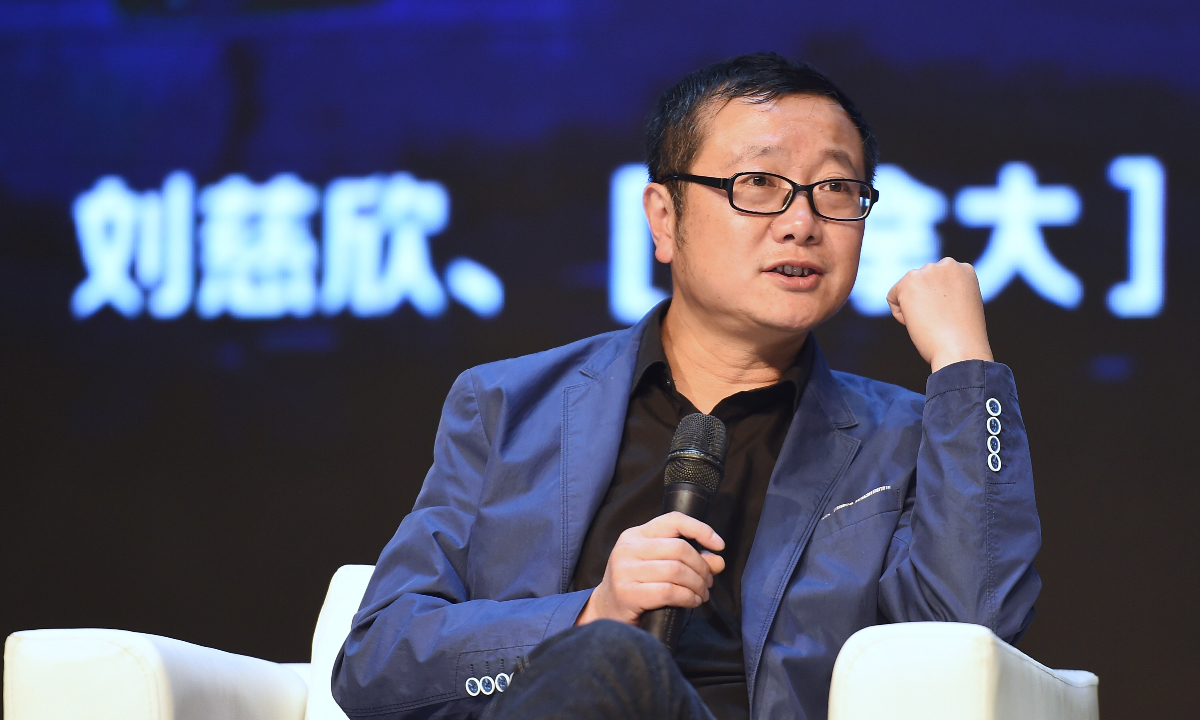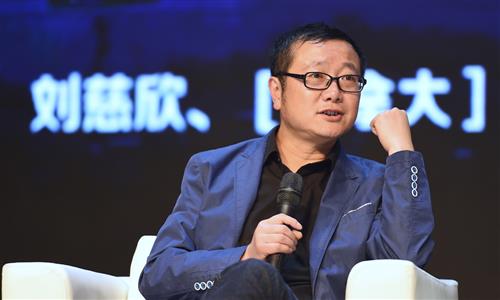ARTS / BOOKS
Renowned Chinese sci-fi novelist Liu Cixin advocates fostering futurology in basic education

Liu Cixin Photo: IC
"We must guide teenagers to think: What will the future world be like? Is it possible for it to be different? Can we adapt to or change the future? What can we do to make the future better? This is the most fundamental thinking of futurology. It can be said that futurology and science fiction are inherently interconnected," Chinese science fiction novelist Liu Cixin emphasized the importance of instilling a sense of the future in young minds during an online speech in Beijing recently.
Liu is renowned for his masterpiece The Three Body Problem, which won him the Hugo Award in 2015. During his speech, he argued that there is a yet-to-be-included discipline in basic education - futurology - which should be incorporated into the framework of science popularization and science fiction education.
Citing Stellar Wanderer, a Chinese sci-fi work that takes the growth story of an "interstellar girl" as its thread, he noted how the work showcases to young readers a vast and brilliant future landscape under a cosmic framework.
Such works offer abundant content that can be explored and expanded upon, Liu said.
Notably, Liu has long championed the importance of imagination in the creation of sci-fi works, a sentiment echoed during his speech.
In October, the World Science Fiction Convention (WorldCon) was held in Chengdu, Southwest China's Sichuan Province, gathering writers, artists and enthusiasts to discuss the development of sci-fi.
Liu told reporters during the event that "Sci-fi is something that can stimulate the imagination of young people, open up their horizons and get them interested in the unknown world and science. If we can do this, I think a lot of sci-fi literary talents will emerge among the young generations."
He also expressed his hopes for humanity 100 years from now.
"Hopefully, the humans of 100 years from now will be far beyond our generation, whether it's their lives, their accomplishments, or that sphere in which the humans of their time live, far beyond the imagination of the sci-fi writers of our generation," he said.
Chinese sci-fi has undergone fast growth over the last decade, and more young writers are emerging with more creative ideas such as sci-fi games, comics and animation.
At WorldCon, there were already some promising signs, as the Chinese novelette The Space-Time Painter by Chinese author Hai Ya won the Hugo Award for Best Novelette. Hai is the third Chinese author to win the most prestigious international sci-fi award after Liu's Best Novel achievement in 2015 and Best Novelette won by Hao Jingfang in 2016.
"We can use our imagination to create worlds that we don't have in our reality. That's why we need sci-fi," Liu noted at the WorldCon.

